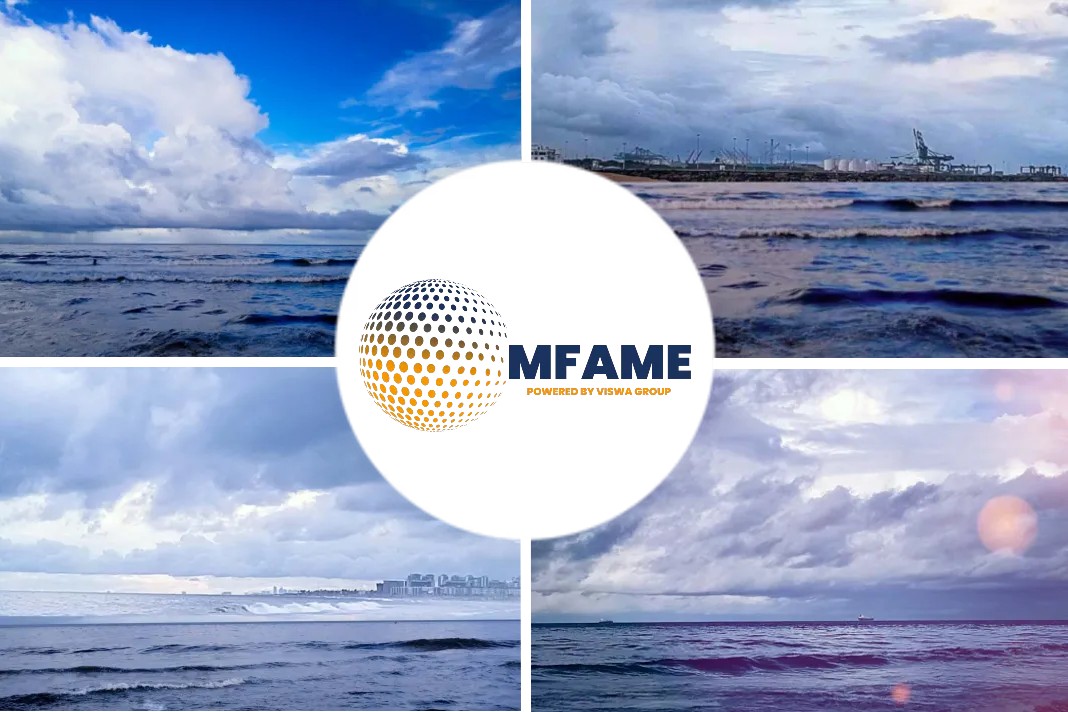The world’s leading classification society, DNV, released the latest updates to its rules for ship classification, with a raft of new class notations designed to enable the maritime industry to tackle the decarbonization challenge, says a press release published on their website.
What does the new notation include?
The new updates include “Fuel Ready”, a class notation that offers shipowners the option to prepare for a later conversion to multiple different alternative fuel options, and “Gas fuelled ammonia” for ammonia fuelled vessels, to stay ahead of shipping’s ever tightening carbon reduction requirements.
Fuel choice a critical decision
DNV’s annual report on the energy transition in shipping – “Maritime Forecast to 2050” – has identified fuel choice as the most critical decision facing shipowners and operators today.
Maintaining flexibility in the choice of fuel, especially when the bunkering environment is in flux, can minimize the risk of stranded assets and maintain a vessel’s lifetime competitiveness.
“The whole maritime industry, but particularly shipowners and operators, are facing a great deal of uncertainty around their choice of future fuel,” said Knut Ørbeck-Nilssen, CEO of DNV Maritime.
“With the industry under pressure to bend the carbon curve towards zero, inaction is not an option, but picking a future winner in a complicated fuel landscape is a significant challenge. “Fuel Ready” gives owners the option to tailor their future conversion with more than one fuel in mind, while “Gas fuelled ammonia” provides a practical path for owners who are looking to move towards a zero-carbon fuel option with their next newbuilding.”
About the new notations
“Fuel Ready” notation
- Applicable for ammonia, LNG, LPG and LFL (methanol) as a ship fuel – either individually or for more than one fuel at the same time.
- It is built around two mandatory options, (D) Design and (Ti/Tc) Tank, with basic and optional levels of preparation that offer a simple framework for all involved parties in newbuildings.
- Optional attributes cover the structure, engine and machinery, piping and bunkering, and miscellaneous requirements.
- With all of the options, owners can choose to prepare for a later installation of any system or go ahead with the actual installation and obtain certification of the system during construction.
“Gas fuelled ammonia” notation
Ammonia is emerging as a promising alternative fuel option for shipping to help reduce greenhouse gas emissions. With the “Gas fuelled ammonia” notation:
- DNV provides owners looking to build ammonia fuelled vessels, the option to start today.
- Currently, owners are faced with the long, challenging, and costly, “alternative design” approach under the SOLAS regulations.
- The new class notation sets out the requirements for the ship’s fuel system, fuel bunkering connection, and on through to the consumers.
DNV’s other notation updates
DNV has also updated some of its signature class notations that focus on reducing shipping’s overall environmental impact, including:
- Fuel cell installations,
- “LFL fuelled” for low flashpoint liquid fuelled engines,
- the “Silent(E)” notation for underwater noise, and
- “Quiet” for external airborne noise emissions.
The new notations and rules updates were launched on 1 July, 2021 and enter into force 1 January, 2022. A full description of the rules and links can be found here.
Did you subscribe to our daily newsletter?
It’s Free! Click here to Subscribe!
Source: DNV
























